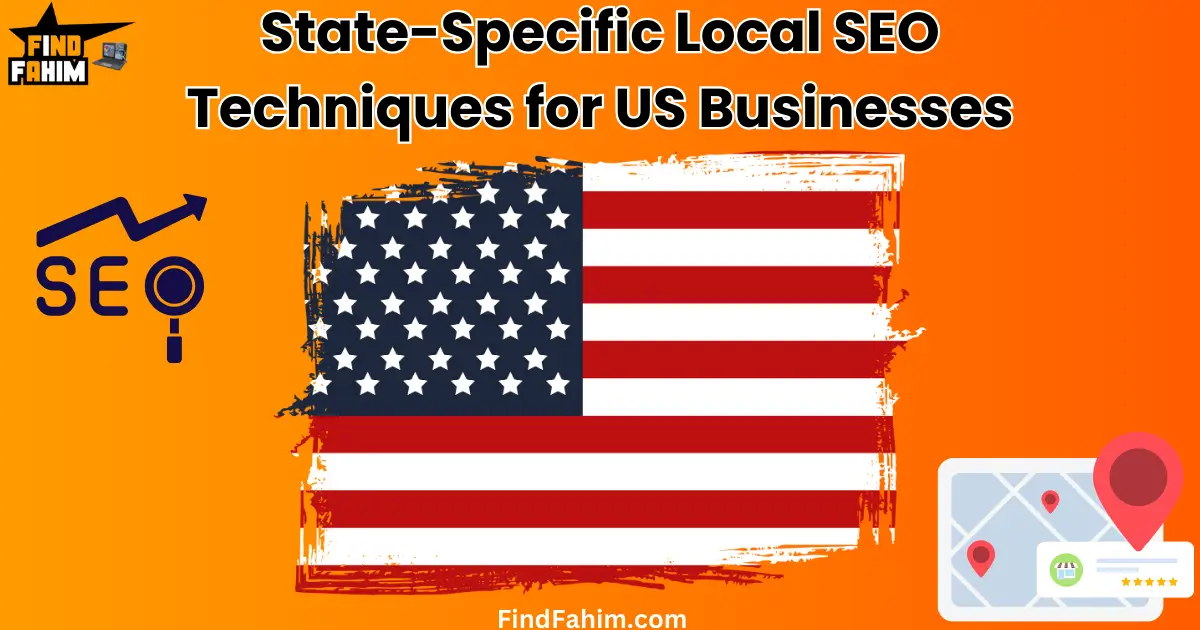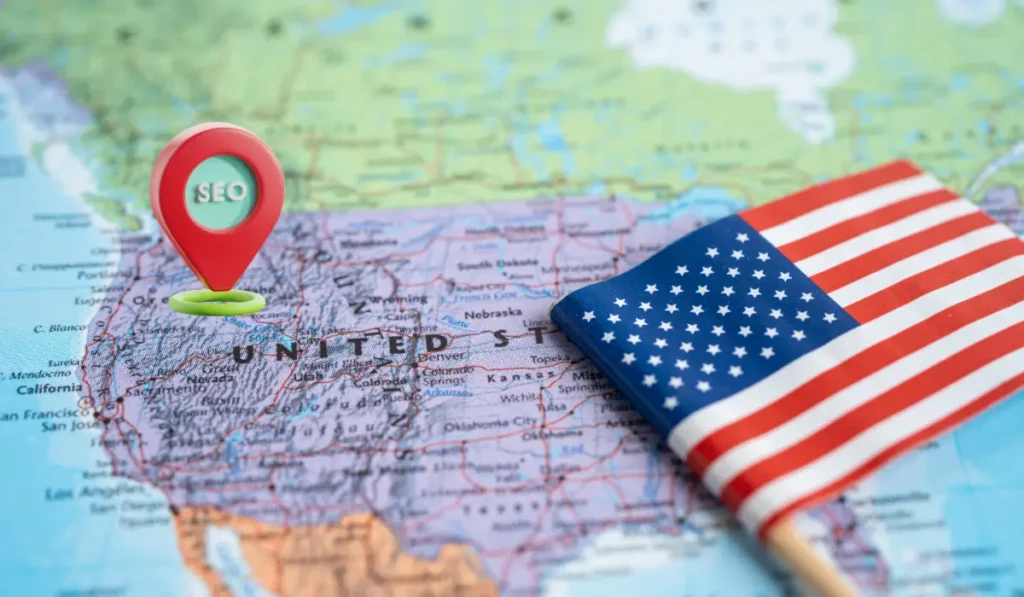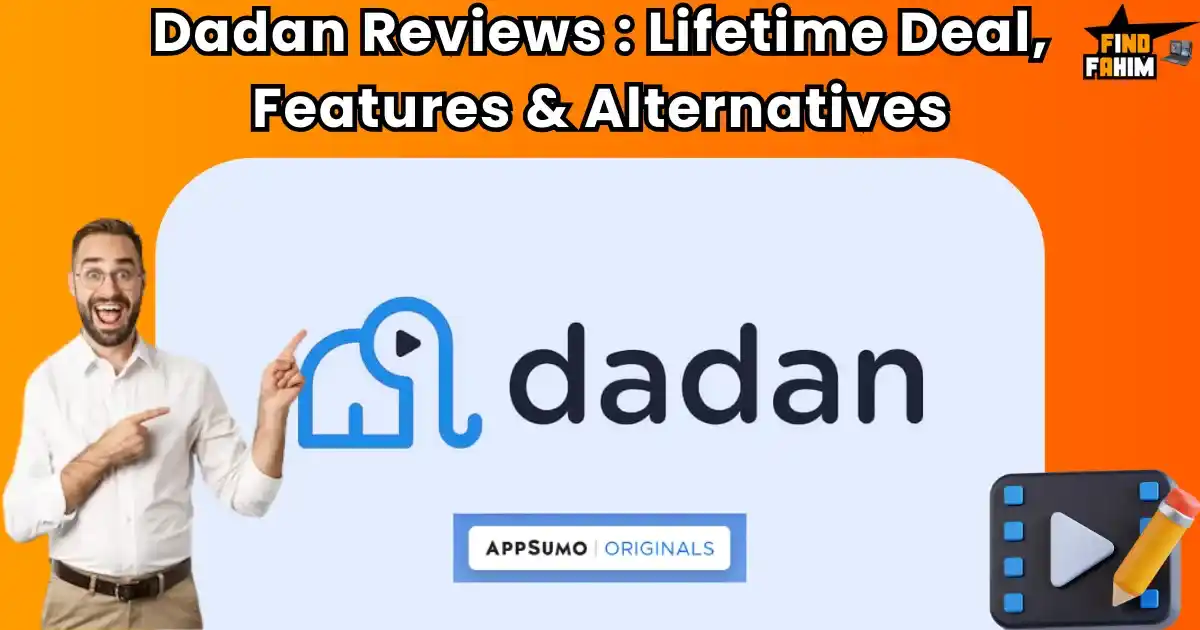The Secret Sauce of State-Specific Local SEO
Imagine owning a business in a competitive market where potential customers are just a click away, yet they can’t find you. Frustrating, right? That’s where state-specific local SEO techniques come into play. By tailoring your strategies to target local audiences across key states, you can ensure your business stands out where it matters most—in the searches of nearby customers with high buying intent.
Take the case of a boutique bakery in New York struggling to attract walk-in customers. With strategic local SEO, they climbed the ranks in “best cupcakes near me” searches, drawing customers from miles around and doubling their revenue. This isn’t just an isolated success story—it’s what effective local SEO can do for you, whether you’re in Texas, California, or beyond.
Local SEO isn’t merely about appearing on search engines; it’s about building trust, relevance, and visibility in the hearts of your community. In this guide, we’ll uncover state-specific strategies to help businesses across 15 key US states dominate their local markets and thrive in today’s digital-first world.
What Is Local SEO?
Definition: Local SEO refers to the practice of optimizing your online presence to attract more business from local searches. It’s especially relevant for queries like “near me” or “best [service] in [city].”
How Local SEO Differs from General SEO:
- Focus: Targets local areas rather than global or national audiences.
- Tactics: Heavy reliance on tools like Google My Business (GMB), local keywords, and location-specific content.
- Results: Prioritizes visibility in Google’s Local Pack and local map results.
Key Benefits:
- Increased Visibility: Appear in the top spots for local queries.
- Engagement with Nearby Audiences: Build a connection with your community.
- Higher Conversions: People searching locally often have a strong purchase intent.
Nationwide Benefits of Local SEO
Even if you run a small local business, the benefits of an effective local SEO strategy extend across states and regions.
Improved Rankings in Local Searches:
Ranking for location-based queries like “best bakery near me” ensures higher visibility for consumers ready to act.
Greater Community Connection:
Local SEO fosters trust through platforms like GMB, where accurate information and positive reviews enhance your credibility.
Increased Foot Traffic and Inquiries:
Optimizing for local search helps attract more visitors to your store or website. Tools like mobile-friendly click-to-call buttons make it easier for users to reach you directly.
Enhanced Brand Credibility:
By maintaining accurate details and engaging with reviews, your business is perceived as reliable and professional.
State-Specific Local SEO Strategies
Local SEO is most effective when tailored to the unique traits of each state and its cities. This section provides actionable insights for businesses in 15 key U.S. states, ensuring they can connect with their target audiences more effectively.
1. California
Target Cities: Los Angeles, San Francisco, San Diego
- Focus Areas: Entertainment, tech, and diverse demographics.
- Strategies:
- Create content highlighting local events like film festivals or tech expos.
- Keywords: “Tech startups in Silicon Valley,” “Best sushi restaurants near Hollywood.”
- Leverage visuals and video marketing for city-based promotions.
- GMB Optimization: Include hours and special offerings for events like Comic-Con in San Diego.
2. New York
Focus Areas: NYC neighborhoods, Upstate New York
- Strategies:
- Develop landing pages for boroughs like Brooklyn, Queens, and Manhattan.
- Keywords: “IT services Manhattan,” “Best cafes Albany.”
- Promote partnerships with iconic NY businesses for cross-promotion.
- Content Ideas:
- Guides on “Top attractions in NYC neighborhoods” or “Must-visit places in Upstate New York.”
3. Texas
Cities: Houston, Dallas, Austin, San Antonio
- Focus Areas: Festivals, food culture, and live events.
- Strategies:
- Highlight local events like SXSW in Austin.
- Keywords: “BBQ spots in Dallas,” “Best live music venues in Austin.”
- Feature blog posts on Texas-sized offerings, such as large shopping districts or state fairs.
4. Florida
Target Markets: Miami, Tampa, Orlando
- Focus Areas: Tourism and entertainment hubs.
- Strategies:
- Optimize for tourism-related keywords: “Theme parks near Orlando,” “Beachfront hotels Miami.”
- Include GMB posts promoting seasonal deals or events like the Tampa Bay Seafood Festival.
- Create video content around popular tourist activities.
5. Illinois
Key Focus: Chicago and smaller downstate regions
- Strategies:
- Emphasize food and cultural attractions.
- Keywords: “Best pizza in Chicago,” “Architectural tours Chicago.”
- Partner with local influencers to showcase popular spots.
- GMB Tactics: Regularly update business photos of iconic Chicago locations.
6. Ohio
Cities: Columbus, Cleveland, Cincinnati
- Focus Areas: Neighborhood-focused SEO and local events.
- Strategies:
- Use content targeting local sports teams or colleges.
- Keywords: “Craft breweries in Columbus,” “Affordable housing in Cleveland.”
- Build citations with platforms like Ohio.biz and local chambers of commerce.
7. Pennsylvania
Key Cities: Philadelphia, Pittsburgh
- Focus Areas: Historical landmarks and local pride.
- Strategies:
- Optimize for history-rich content: “Walking tours of Philadelphia.”
- Incorporate sports-related keywords like “Best spots to watch Eagles games in Pittsburgh.”
- Partner with local historical societies for backlinks.
8. Georgia
Focus Area: Atlanta metropolitan growth
- Strategies:
- Use keywords like “Real estate in Atlanta suburbs,” and “Southern cuisine in Atlanta.”
- Post content highlighting local events like the Peachtree Road Race or cultural festivals.
- Leverage local directories such as ExploreGeorgia.org for citations.
9. Michigan
Cities: Detroit, Grand Rapids
- Focus Areas: Auto industry and community services.
- Strategies:
- Optimize for niche keywords: “Car repair services in Detroit,” “Art galleries in Grand Rapids.”
- Create localized videos showcasing Michigan’s growth in the electric vehicle industry.
10. North Carolina
Cities: Charlotte, Raleigh
- Focus Areas: Research hubs, colleges, and lifestyle trends.
- Strategies:
- Keywords: “Best neighborhoods in Charlotte,” “Raleigh tech startups.”
- Post blogs on university culture or local craft beer tours.
11. New Jersey
Focus Areas: Suburbs and NYC commuters
- Strategies:
- Highlight retail opportunities with keywords like “Best malls near Newark.”
- Partner with businesses catering to commuters, such as local transit authorities.
- Use neighborhood-specific GMB posts for hyper-local engagement.
12. Washington
Cities: Seattle, Tacoma, Spokane
- Focus Areas: Tech and sustainability.
- Strategies:
- Promote eco-friendly practices using keywords like “Sustainable shops in Seattle.”
- Leverage partnerships with local tech meetups.
13. Colorado
City: Denver
- Focus Areas: Outdoor tourism and lifestyle themes.
- Strategies:
- Keywords: “Best ski resorts near Denver,” “Hiking trails near Boulder.”
- Optimize for seasonal content to attract tourists.
14. Arizona
Cities: Phoenix, Tucson, Scottsdale
- Focus Areas: Desert tourism and business hubs.
- Strategies:
- Use keywords like “Desert retreats in Scottsdale,” and “Real estate in Phoenix suburbs.”
- Highlight year-round sunny weather in social posts.
15. Nevada
Focus: Las Vegas and Reno
- Strategies:
- Optimize for entertainment keywords: “Best casinos in Vegas,” “Family-friendly activities in Reno.”
- Promote events like conventions and shows with specific landing pages.
Local SEO Best Practices
To excel in local SEO, it’s essential to focus on foundational strategies. Here are the best practices to implement:
- Google My Business (GMB) Optimization:
- Claim and verify your listing.
- Ensure accurate business information (name, address, phone number, hours).
- Post regular updates, photos, and offers to engage local audiences.
- Mobile-Friendly Website Design:
- Optimize your website for mobile devices, as most local searches happen on mobile.
- Ensure fast page load speeds and intuitive navigation.
- Local Keywords & Landing Pages:
- Use targeted keywords such as “best coffee shop in [city].”
- Create separate landing pages for each city or neighborhood you target.
- Local Citations:
- List your business in reputable directories (Yelp, Bing Places, and industry-specific sites).
- Maintain NAP (name, address, phone number) consistency across all listings.
- Customer Reviews:
- Encourage satisfied customers to leave reviews on Google, Yelp, and Facebook.
- Respond to all reviews—both positive and negative—to build trust.
Measuring Success: Tracking Local SEO Performance
To evaluate the effectiveness of your local SEO strategy, use the following tools and track key metrics:
- Tools:
- Google Analytics: Measure traffic, user behavior, and conversions.
- Google Search Console: Monitor search performance and local keyword rankings.
- BrightLocal: Track local SEO-specific metrics like map pack visibility.
- Metrics to Monitor:
- Visibility: Local keyword rankings and impressions.
- Website Traffic: Growth in traffic from local areas.
- Leads and ROI: Calls, inquiries, and sales generated by local efforts.
FAQ Section
What is local SEO?
Local SEO is optimizing your online presence to attract more business from local searches on Google and other search engines.
How does it help my business grow?
Increasing visibility in local search results can attract more nearby customers, boost foot traffic, and grow revenue.
How do I choose the right local keywords?
Use tools like Google Keyword Planner and SEMrush to find keywords specific to your city, neighborhood, or industry.
Why is Google My Business crucial for local SEO?
GMB improves your visibility in Google Maps and local search results, directly impacting customer engagement.
What are the best tools for monitoring local SEO progress?
Google Analytics, Search Console, BrightLocal, and Moz Local are excellent options for tracking performance.
Local SEO offers tremendous opportunities for businesses to connect with their target audience and thrive in competitive markets. You can elevate your local presence and achieve sustainable growth by leveraging state-specific strategies and adhering to best practices.
Also “Don’t forget to get the best lifetime deals on SEO and marketing tools at AppSumo!”
Hi, I’m Fahim — a SaaS tools reviewer and digital marketing expert with hands-on experience helping businesses grow using the right software. I research, test, and personally use a wide range of AI, business, productivity, marketing, and email tools for my agency, clients, and projects. I create honest, in-depth reviews and guides to help entrepreneurs, freelancers, startups, and digital agencies choose the best tools to save time, boost results, and scale smarter. If I recommend it, I’ve used it — and I only share what truly works.








